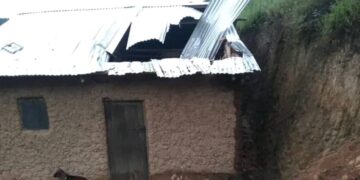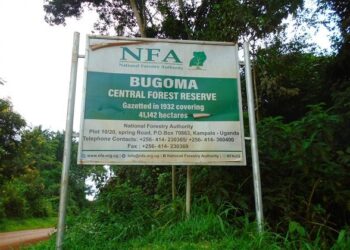OPINION
On October 21, 2025 two female climate activists and others were arrested during a peaceful march to the National Environmental Management Authority(NEMA) headquarters in Kampala. The group sought to deliver a petition urging NEMA to revoke permits issued to Chinese companies engaged in sand mining and commercial agriculture in Lwera wetland. The arrest took place as the activists approached the NEMA offices despite the peaceful nature of their demonstrations.
The female activists together with others were taken to Central Police Station(CPS) where they spent a night. They were subsequently presented before chief magistrate’s court at Buganda road where they charged with public nuisance. the court remanded them to Luzira prison and the hearing is scheduled for November 4,2025
The female climate activists, members of several environmental and community organizations, said their action was meant to urge the government to uphold citizen’s constitutional right to clean and health environment.
“We were simply asking NEMA to do its duty of protecting the environment, not sell it “said one of the activists before being taken into custody.
Lwera wetland, a lifeline under threat stretches along Kampala Masaka high way, spanning an area of approximately 1,000 hectares. It plays a critical role in regulating Uganda’s climate, filtering pollutants and serving as a natural buffer against flooding. Wetlands act as carbon sinks absorbing greenhouse gases and mitigating the impacts of climate change.
However, widespread mining and conversion of wetland areas into commercial farms have destroyed large sections of Lwera, releasing stored carbon into the atmosphere and worsening the country’s climate vulnerability. This destruction, environmentalists warn that it undermines Uganda’s commitment under the United Nations Framework Convention on climate change(UNFCCC) and Paris Agreement.
The ongoing degradation is broader environmental threats including the East African Crude oil pipeline(EACOP) project which has been heavily criticized for its potential to destroy critical ecosystems and accelerate climate change. Wetlands could have helped mitigate these impacts presented if they were preserved.
The arrested climate activists also highlighted how women are disproportionately affected by the destruction of wetlands, forests and other natural resources. in most Ugandan communities, women are responsible for growing food, fetching water and collecting medicinal plants for their families.
With wetlands drying up and forests cleared, water sources are becoming contaminated, crops yields are dropping due to erratic weather and access to traditional medicines is diminishing. These challenges increase the burden on women and worsen poverty levels in rural areas.
“when the environment suffers, women suffer twice” said another climate activist. “we are not just protecting wetlands, we are protecting life, food and health for our families”
It should be noted that Lwera is not the only ecosystem under threat, a cross Uganda, several natural habitats have been handed over to private investors in controversial manner.
The Ugandan government has recently made a highly contested decision to allocate 150 acres of Kitubulu Central Forest Reserve, located in Entebbe, to the Chinese company Tian Tang Group. Officially, the area is set to host government facilities and private resorts.
In August 2020 NEMA, issued a permit to Hoima Sugar ltd authorizing the destruction of Bugoma forest to grow sugarcane. These projects reflect a worrying pattern of prioritizing short term economic gains over long term ecological sustainability.
Environmental experts warn that continued encroachment on wetlands and forests could exacerbate flooding, reduce rainfall and intensify food insecurity, further straining communities already battling the effects of climate change.
Environmental groups are demanding the immediate release of the arrested activists and renewed scrutiny of all environmental permits granted to private companies
They are calling on NEMA and the Ugandan government to strengthen environmental governance and invest in community led conservation effort.
Finally, the government must know that protecting the environment is not anti-development, it’s about ensuring that development does not destroy the very resources on which survival depends.
By Doreen Namara,
The writer is the Chief Executive Director, Liberty Pro Bono Initiative(LPI)
Email: doreennamara24@gmail.com








































